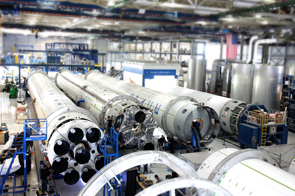Corporate Social Responsibility
At SFO, CSR is at the heart of the corporate culture. There is a total commitment to contributing to the welfare of the society. This happens through well-designed CSR initiatives with an intention of serving the society by philanthropy.
The CSR Vision at SFO
“To strive for the economic & social development by consulting proactively with the community & the stake holders, to understand the necessities of the society & design initiatives for the well being of the society at large, on a continuous basis & to ensure that such measures are implemented effectively.”
Identified Focus Areas are:
- Health: Eradicating hunger, poverty & malnutrition promoting preventive health care & sanitation & making available safe drinking water.
- Education & Employment: Promoting education & employment enhancing vocation skills especially among children, women & the disabled.
- Women Empowerment: Promoting gender equality, empowering women setting up homes & hostels for women & orphans setting up old age homes
- Nature: Ensuring environmental sustainability, animal welfare, agro-forestry conservation of natural resources.
- National Heritage: Protection of national heritage art & culture, promotion & development of traditional arts & handcrafts
Sustainability Initiatives
SFO is dedicated to advancing sustainability through comprehensive initiatives that address key areas including environmental stewardship, health and safety, human rights, labor rights, and ethical business practices.
Our sustainability efforts are anchored in internationally recognized standards such as the United Nations Global Compact, the Global Reporting Initiative, and ISO 26000. These frameworks guide our approach, ensuring that we meet and exceed global expectations for corporate responsibility.
To maintain transparency and continuously enhance our practices, SFO engages in global sustainability reporting through established platforms like EcoVadis and CDP. These platforms support our commitment to rigorous evaluation, improvement, and reporting of our sustainability policies, actions, and outcomes.
SFO has also initiated annual carbon inventory calculations across all its units at the group level, becoming an active participant in the global carbon footprinting and reduction process. This commitment to measuring and monitoring emissions is a crucial step in our ongoing carbon reduction journey.
Carbon Reduction Trajectory – Scope 1 and Scope 2
As part of our commitment to environmental sustainability, SFO Technologies has set clear targets to reduce our greenhouse gas (GHG) emissions. Using 2023 as the base year, we aim to:
- Achieve a 30% reduction by 2030
- Achieve a 50% reduction by 2035
These targets align with international sustainability standards and reflect our dedication to minimizing our environmental impact through energy efficiency, the adoption of renewable energy sources, and continuous improvement in our operational practices.
Top Management’s Commitment
Our leadership’s commitment to sustainability is demonstrated through the release of key policies, which set the framework for our practices and goals:
These policies not only reflect our top management’s dedication but also serve as benchmarks for our ongoing sustainability efforts and performance. Through these measures, SFO aims to lead by example and drive meaningful progress toward a more sustainable future.
SFO Technologies Private Limited is committed to integrating environmental sustainability into every aspect of our operations, both direct and throughout our value chain. This policy aligns with the Paris Agreement, the Kunming-Montreal Global Biodiversity Framework, the United Nations Sustainable Development Goals (SDGs), and the principles of the United Nations Global Compact (UNGC). Our approach is driven by the principles of a circular economy, protection of natural environment, climate action, and the sustainable use and management of water resources.
Climate Change
- Achieve net-zero greenhouse gas emissions by 2050, in line with the goals of the Paris Agreement.
- Implement energy-efficient technologies and practices to minimize energy consumption and promote the use of renewable energy sources wherever feasible.
- Invest in credible carbon offset projects to neutralize unavoidable emissions, contributing to global carbon reduction efforts.
- Develop and implement strategies to adapt to the impacts of climate change on our business operations and supply chain resilience.
- Not support or engage in activities that undermine climate science or regulations aimed at mitigating climate change.
- Implement circular economy practices to reduce waste, enhance resource efficiency, and lower our carbon footprint.
Water
- Implement water-efficient technologies and practices to reduce water withdrawal and consumption in our operations and encourage suppliers to adopt similar measures.
- Implement measures to prevent and reduce water pollution, ensuring that our discharges meet or exceed regulatory standards.
- Support access to safe water, sanitation, and hygiene (WASH) services for local communities.
- Engage in collaborative water stewardship initiatives to promote sustainable water management in the regions where we operate.
- Protect and restore freshwater ecosystems affected by our operations.
Waste
- Adopt a lifecycle approach to minimize waste generation and maximize resource recovery and reuse, supporting circular economy.
- Go beyond compliance to proactively reduce waste and enhance environmental performance.
Air Quality
- Meet or exceed all relevant air quality regulations and standards..
- Implement best practices and technologies to minimize air emissions and improve air quality.
Biodiversity
- Ensure our operations do not negatively impact threatened and protected species.
- Prohibit the trade and use of species listed under the Convention on International Trade in Endangered Species (CITES).
- Respect and protect legally designated protected areas in our operational regions.
- Engage with suppliers to ensure they adhere to sustainable sourcing practices that minimize impacts on biodiversity, including avoiding sourcing from ecologically sensitive areas.
- Support initiatives that conserve and restore ecosystems, particularly those critical to biodiversity conservation, through partnerships and direct investments.
Hazardous Substances
- Reduce the use of hazardous substances in our operations and products.
- Implement measures to safely manage and dispose of hazardous substances, ensuring compliance with all relevant regulations.
Stakeholder Engagement
- Engage stakeholders, including employees, suppliers, customers, and local communities, in our environmental initiatives and build capacity on environmental issues.
- Recognize and protect the rights of Indigenous Peoples and local communities in our areas of operation.
- Acknowledge and support the human right to water and sanitation for all individuals.
- Participate in collaborative efforts to promote sustainability goals at a landscape level, including river basin initiatives.
Continuous Improvement and Compliance:
- Regularly monitor and report on key environmental performance indicators related to climate change, biodiversity, and water management to stakeholders.
- Provide training to employees and suppliers on environmental best practices and their role in achieving our environmental goals.
- Ensure compliance with relevant customer requirements, environmental laws, regulations, and international standards pertaining to climate change, biodiversity, and water management.
Leadership and Accountability:
- Senior management will provide leadership and allocate resources necessary to achieve the objectives outlined in this environmental policy.
- Regularly review and update this environmental policy to reflect advancements in scientific knowledge, technology, and regulatory requirements, ensuring our ongoing commitment to sustainability.
Conclusion
SFO Technologies Private Limited is dedicated to driving positive environmental change through sustainable practices, regulatory compliance, and proactive initiatives. We will regularly review and update this policy to ensure continuous improvement and alignment with global sustainability goals.
Date: 11 / July / 2024
Managing Director
SFO Technologies is committed to operating as a responsible and sustainable organization. We recognize that greenhouse gas emissions are a significant contributor to climate change, and we are dedicated to taking meaningful steps to reduce our carbon footprint. This Greenhouse Gas Policy outlines our commitment to managing and reducing GHG emissions across our operations by adhering the following principles:
- We will comply with all relevant GHG emission laws, regulations and other requirements including customer requirements..
- We will measure and report our GHG emissions accurately and transparently, considering Scope 1, Scope 2, and, where feasible and relevant, Scope 3 emissions sources, in accordance with applicable international standards and guidelines..
- We will set and regularly review GHG reduction targets to decrease our carbon emissions, with the ultimate aim of achieving carbon neutrality or net-zero emissions in the long term..
- We will engage employees at all levels in GHG reduction initiatives and educate them about the importance of addressing climate change..
- We will collaborate with our suppliers and partners to encourage GHG reduction efforts throughout the supply chain..
Date: 30 – 11 – 2023
Managing Director
SFO Technologies is committed to responsible and sustainable business operations. We recognize that energy efficiency and conservation are critical aspects of our environmental and economic responsibilities. This Energy Management Policy outlines our commitment to managing energy effectively and reducing our carbon footprint by adhering the following principles:
- We will continually seek opportunities to improve energy efficiency, reduce consumption, and minimize greenhouse gas emissions across our facilities and operations.
- We will comply with all relevant energy-related laws, regulations and other requirements including customer requirements.
- We will ensure that our employees and stakeholders are aware of this policy and provide them with the necessary training to implement energy-efficient practices.
- We will use energy responsibly and strive to minimize energy waste in all areas of our business operations.
- We will set, monitor, and strive to achieve energy performance targets, regularly reviewing and updating them as necessary.
- All employees are encouraged to contribute to energy efficiency by identifying areas for improvement and adhering to energy management practices.
- We will explore and invest in renewable energy sources where applicable and economically viable.
Date: 30 – 11 – 2023
Managing Director


































